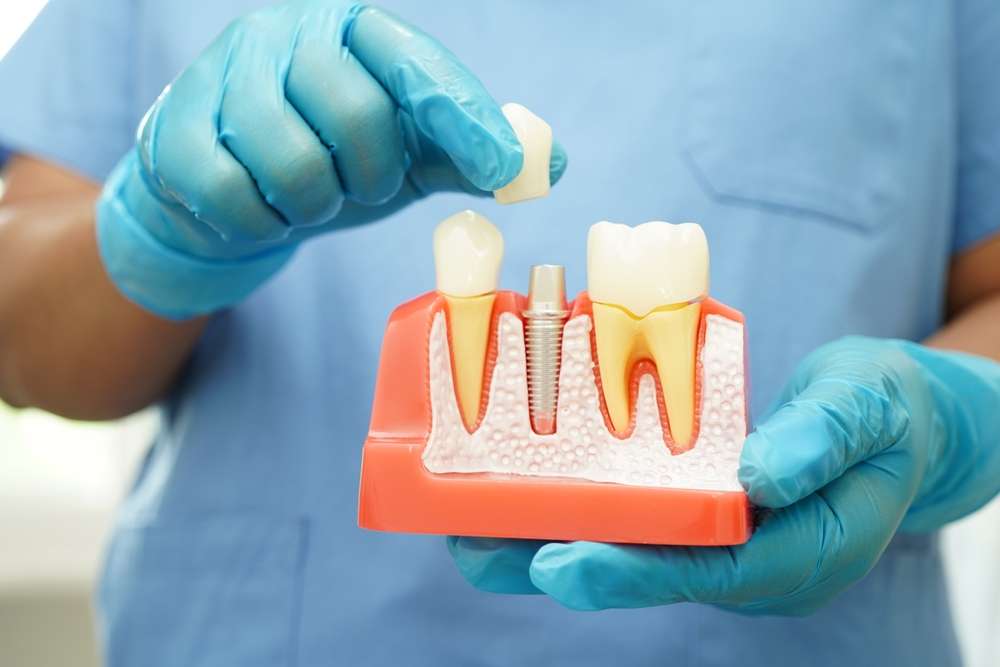Everything You Need to Know About Dental Implants: Key Information and Benefits
Dental implants have revolutionized the field of dentistry, offering a permanent and natural-looking solution for missing teeth. If you're considering this innovative treatment, it's essential to understand what dental implants are, how they work, and the benefits they provide. This comprehensive guide will walk you through everything you need to know about dental implants, from the procedure itself to the long-term advantages they offer.

What are dental implants and how do they work?
Dental implants are artificial tooth roots made of titanium that are surgically placed into the jawbone to support replacement teeth. These implants fuse with the bone over time through a process called osseointegration, creating a strong and stable foundation for crowns, bridges, or dentures. The result is a restoration that looks, feels, and functions like natural teeth, allowing patients to eat, speak, and smile with confidence.
Who is a good candidate for dental implants?
Most adults with good overall health and sufficient bone density in their jaw are suitable candidates for dental implants. However, factors such as smoking, certain medical conditions, and inadequate oral hygiene may affect eligibility. A thorough evaluation by a dental professional is necessary to determine if dental implants are the right solution for you. In some cases, bone grafting procedures may be recommended to improve bone quality before implant placement.
What does the dental implant procedure involve?
The dental implant procedure typically involves several stages spread over a few months:
-
Initial consultation and planning
-
Extraction of damaged teeth (if necessary)
-
Bone grafting (if required)
-
Implant placement surgery
-
Healing and osseointegration period (usually 3-6 months)
-
Attachment of abutments
-
Placement of final prosthetic teeth
Each stage is carefully managed to ensure the best possible outcome. While the process may seem lengthy, the result is a long-lasting and reliable solution for missing teeth.
What are the benefits of dental implants compared to other solutions?
Dental implants offer numerous advantages over traditional solutions for missing teeth:
-
Natural appearance and function
-
Improved speech and comfort
-
Enhanced chewing ability
-
Preservation of jawbone and facial structure
-
No need to alter adjacent teeth (unlike with bridges)
-
Long-lasting results (can last a lifetime with proper care)
-
Improved self-esteem and quality of life
These benefits make dental implants an attractive option for many patients seeking a permanent solution for tooth loss.
What is the recovery process like after getting dental implants?
Recovery after dental implant surgery varies from person to person, but most patients can return to normal activities within a few days. Initially, you may experience some swelling, bruising, and discomfort, which can be managed with over-the-counter pain medication and ice packs. It’s crucial to follow your dentist’s post-operative instructions carefully, including maintaining excellent oral hygiene and avoiding hard or chewy foods during the healing period.
In Worldwide, many patients report a relatively smooth recovery process, with minimal disruption to their daily lives. However, it’s essential to attend all follow-up appointments and communicate any concerns with your dental care provider to ensure optimal healing and integration of the implants.
How much do dental implants cost, and are they covered by insurance?
The cost of dental implants can vary significantly depending on factors such as the number of implants needed, the complexity of the case, and the geographic location. In general, a single dental implant can range from $1,500 to $6,000, including the implant, abutment, and crown.
Here’s a comparison of average costs for different dental implant solutions:
| Procedure | Average Cost Range | Typical Insurance Coverage |
|---|---|---|
| Single Implant | $1,500 - $6,000 | Partial coverage possible |
| All-on-4 Implants | $15,000 - $30,000 per arch | Limited coverage |
| Full Mouth Implants | $30,000 - $50,000+ | Limited coverage |
Prices, rates, or cost estimates mentioned in this article are based on the latest available information but may change over time. Independent research is advised before making financial decisions.
Many dental insurance plans consider implants an elective procedure and may not provide full coverage. However, some plans offer partial coverage for the crown portion of the implant or related procedures like extractions. It’s essential to check with your insurance provider to understand your specific coverage.
Some dental practices offer financing options or payment plans to help make dental implants more affordable. Additionally, dental schools or clinical trials may provide implant services at reduced costs.
In conclusion, dental implants represent a significant advancement in tooth replacement technology, offering a durable and natural-looking solution for missing teeth. While the process requires time and financial investment, the long-term benefits in terms of oral health, functionality, and quality of life make them an attractive option for many patients. By understanding the procedure, benefits, and costs associated with dental implants, you can make an informed decision about whether this treatment is right for you.
This article is for informational purposes only and should not be considered medical advice. Please consult a qualified healthcare professional for personalized guidance and treatment.




